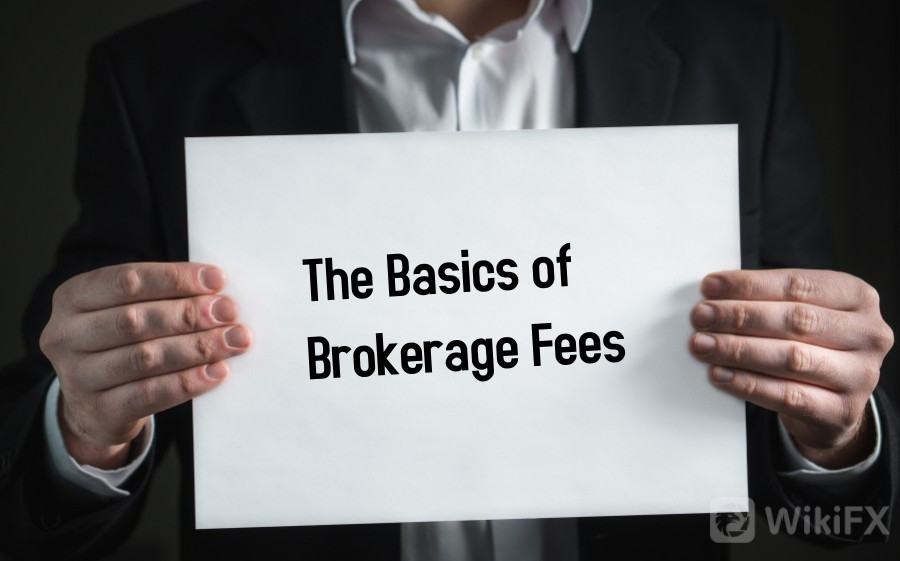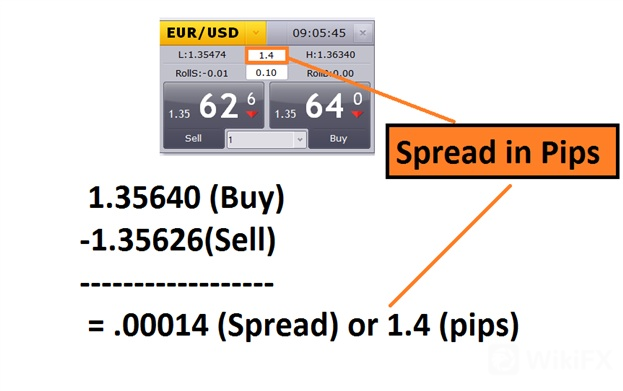
A broker's fee for executing transactions or providing specialized services is known as a brokerage fee. Purchases, sales, consultations, negotiations, and delivery are all services that brokers charge brokerage fees for. Financial services, insurance, real estate, and deliveries are all industries that charge brokerage fees. Brokerage fees are the costs of having your investments held and managed by a broker. Annual fees, expenses for researching investing data, and inactivity penalties if you do not trade consistently are all examples of these costs. It's critical that you comprehend the many forms of brokerage fees as well as the various types of brokers who may assist you in managing your investments.
Spread
The spread is the difference between the “bid” and “ask” prices, or the “buy” and “sell” prices, in basic terms. Assume you buy a share of ABC for 101 dollars, with a retail price of 100 dollars. If you sell the stock at 101 dollars right now, you will lose one dollar due to the spread cost. The wider the spread on a stock, the more expensive it is.
For assets, the majority of licensed stockbrokers employ market spreads. It simply means they don't add any more fees to their spreads and rely exclusively on buy and sell prices. When compared to the spread charges charged by CFD brokers, this strategy is more profitable for traders. When quoting spreads, most CFD brokerages levy additional fees, resulting in a greater spread cost than the genuine market spread.
The spread is used as a commission by forex brokers in the vast majority of circumstances. In a currency pair quote, the spread is the difference between the BID and ASK prices. The broker can make the spread broader than the market one to profit from the price disparity. The broker will earn by 1.2 pips, or about $12 per lot, if the EUR/USD market spread is 0.2 pips and the broker offers traders 1.4 pips.

Commissions
Some brokers charge a flat cost per trade, while others factor in a percentage of your trading volume. For traders dealing with shares with a very low price, the latter strategy is not advantageous. When compared to buying 100 US dollars worth of shares, buying 1,000 US dollars worth of shares where each share is worth less than one US dollar is quite expensive.
Margin Rate
Margin trading is a type of trading in which you borrow money from your broker. You can borrow money from your brokerage to trade for much more than $1,000 USD if you open a margin account with $1,000 USD. However, you will be liable for paying interest on the borrowed funds, which can range from 1% to 5%.
Conversion Fee
If you trade instruments in a currency other than your account's base currency, you may be charged a currency conversion fee, depending on the broker's policy. It also varies by broker, with some of the most well-known brokers, such as Admiral Markets, costing 1% of the total amount.
Deposit and Withdrawal
There are some brokers on the market who do not need a minimum deposit or charge a withdrawal fee. However, some brokerages will charge a withdrawal fee and require you to make a minimum deposit. The withdrawal and deposit methods of the brokerage will determine the costs you'll have to pay.
Inactivity Fee
Many brokerages have a policy that requires you to pay a monthly fee if you remain inactive for a certain period of time. The length of time remaining inactive varies by brokerage, but it usually falls between 12 and 24 months. An average commission without activity is roughly $5-20 per month.
Discount Brokerage Fees
In general, discount brokers do not provide sound investing advice. Because of their restricted functionality, they charge a modest trade fee. They usually feature a simple pricing structure and charge a. Typically, the cost is between 0 and 0.01 US dollars per share.
Full-Charge Brokerage Fees
Full-service brokers, sometimes known as full-charge brokers, offer a wide range of services and products to their clients. In addition, they provide excellent research tools and educational materials to aid you in your trading education. As a result, their commissions are also relatively hefty when compared to low-cost brokers. A commission from a “full-service” brokerage is normally one to two percent of your total managed assets. For example, suppose you want to purchase 1,000 shares of XYZ at a price of $10 per share. In most cases, your brokerage will receive $200 USD in exchange for assisting you with the transaction.
Total amount = 10 dollar per share x 1,000 = 10,000
Commission = 10,000 x 0.02 = 200
As a result, you will be required to pay a total of $10,200 USD.
========
Latest News About The Top & Brand Brokers:
IC Markets secures major 12 club pan-European football deal
XM Wins Best Islamic Forex Account in FxScouts Forex Awards 2021
Exness monthly volume crosses the trillion dollar milestone
Eightcap and BKForex Will Organise One of The Biggest Crypto Trading Events of the Year – CryptoFest 2021
Leading Forex Broking Firm TP Global FX Offers its Services Globally to its Users
IV Markets provides two discount cards to welcome new users

Leave a Reply